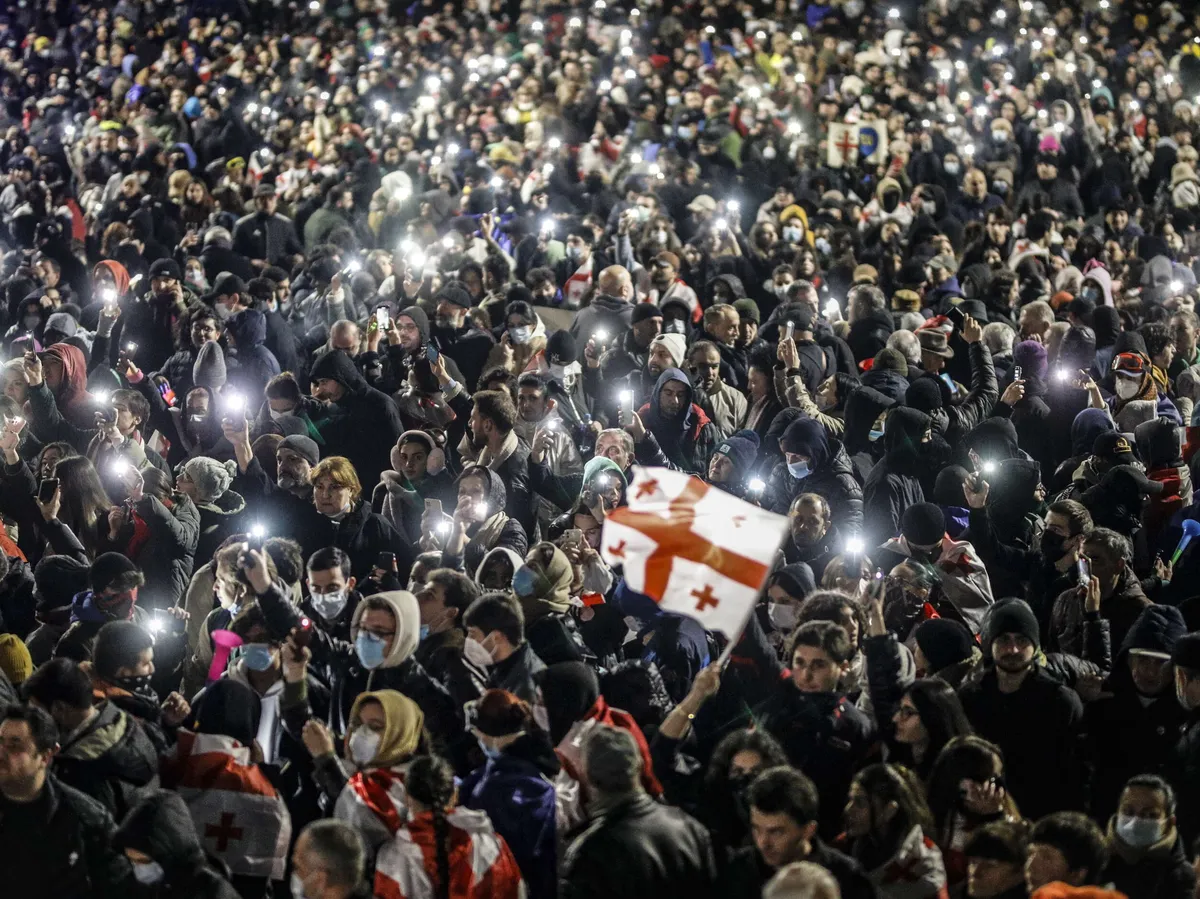Demonstrations that have turned violent have continued in Tbilisi, the capital of Georgia, for three days now and are expected to continue on Sunday as well.
The protesters are against the Georgian government’s decision to block the country’s EU membership. According to the authorities, more than a hundred people have been arrested during the protests.
The protests started when the pro-Russian Georgian Dream party declared itself the winner of the parliamentary elections held at the end of October. Georgia’s pro-EU opposition considers the elections fraudulent.
Georgia’s pro-Western and pro-EU president Salome Zurabishvili describes In an interview with the BBC the current parliament as “illegal”. At the same time, he said that he is not going to resign from his post. Zurabishvili also demands new elections in the country. The parliament has announced that it will elect a new president for Georgia on December 14.
“I am offering stability in the transition because these people in the streets are calling for new elections to restore this country and its European path,” Zurabishvili told the BBC.
The European Parliament has called for reorganizing the Georgian elections under international supervision.
According to the BBC, hundreds of civil servants have also signed letters expressing their dissatisfaction with the government’s decision to suspend negotiations with the EU. According to officials, the decision is against Georgia’s national interests.
Georgian ambassadors in Bulgaria, the Netherlands and Italy have also resigned.
The United States also announced on Saturday that it would suspend its strategic partnership with Georgia, citing the government’s “anti-democratic actions”.
Many have compared the events in Georgia to Ukraine in recent days. The chain of events called the Maidan began with the large-scale protests of 2013, which were followed in 2014 by the pro-Russian president Viktor Yanukovych expulsion. The events of the Maidan were followed by Russia’s reaction, which culminated in the conquest of the Crimean peninsula in 2014.
Minister of Foreign Affairs of Finland Elina Valtonen (kok) commented on the situation in Georgia on Friday afternoon.
“Disappointed with the Georgian government’s decision to stop the EU process – against the will of the people. We still see the future of the Georgian people in a free and democratic society. I strongly condemn all violent actions against peaceful demonstrators. Georgia is Europe,” he wrote on the messaging service X.
Fellow researcher of the German Marshall Fund Irakli Sirbiladze evaluate that Georgia is moving into a new political crisis. He warns that the country is isolating itself from the West and moving closer to Russia.
